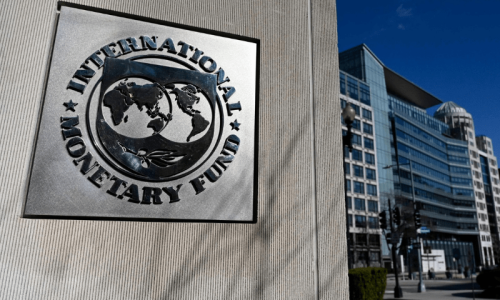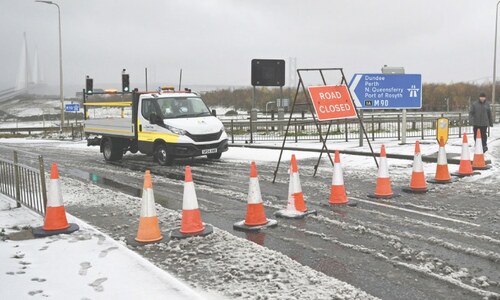Now that the much-awaited elections have finally happened, it is crucial that we look beyond them and consider the kind of challenges the next government faces.
First and foremost, the economic crisis we are grappling with is staggering. Pakistan has never really faced this scale of economic problems, so the leadership coming to power is being dealt an unfair hand.
They are forced to refer to the International Monetary Fund (IMF) as soon as September this year to seek a bailout to the tune of upwards of $15 billion.
This would be nearly double the amount of the last bailout package the country was on a few years ago.
The reason we are going on an IMF programme again is because our economy is not doing well enough due to our last finance minister bungling Pakistan’s fiscal and monetary policies.
So, even though the mess was created by the last government, the Pakistan Tehreek-i-Insaf (PTI) — along with its coalition partners — will be expected to address it immediately.
It will not be easy; going on the programme will require cutting subsidies on power and petroleum products, inadvertently increasing inflation.
Add to that the predicted rupee devaluation to at least Rs150 to $1, and the common person will be bearing the brunt of it all.
Factually speaking, it is not the fault of the new administration that these things will have to be done but, unfortunately, the public will perceive it as such anyway.
Secondly, the PTI must come up with a detailed economic plan, while also figuring out what to do with the federal budget and supplement the increased costs.
The economy is not growing as fast as assumed, lowering Pakistan’s competitiveness in the global market.
Any new government needs to start with seriously rethinking the approach of the last many regimes and concentrate on diversifying Pakistan’s exports, while cutting down on our unnecessary imports.
The diversification must look beyond textiles and cultivate industries with decent margins and without prohibitive start-up costs.
The IT industry is an option but seeing how far behind Pakistan is compared to its regional competitors, it won’t be easy. On top of this, the PTI also needs to enhance the tax base and increase foreign reserves quickly.
Essentially, the incoming leadership would need to hit the ground running with a comprehensive economic plan it has yet to create.
Thirdly, the law and order situation in Pakistan has improved significantly, but the PTI would still have to do a lot more to maintain progress.
Part of this will involve determining a way to deal with the rising tide of extremism, courtesy of the mainstreaming of fringe fanatical parties, as well as the silent rise of extremist views in the more educated and economically well-off segments of the society.
People tend to ignore the penetration of the fringe religious parties, but the ground level threat is real, the magnitude of which is evident with the Tehreek-i-Labbaik finishing third in many constituencies in Punjab.
Lastly, the successor government will have its hands full undoing the 18th Amendment if it is ever coerced into it.
The provinces will not give up easily; Sindh will put up a fight even if the other three provinces side with the government.
The PTI should instead focus on creating a framework where debt servicing is a communal process so provincial governments also contribute, instead of only the federal government.
It is unfair for the latter to be conducting debt servicing alone, when they only get 48% of the national kitty and must pay for the military as well as the functioning of all ministries at the federal level.
The provinces need to do more which is where the negotiations need to take place.
I hope the next government would also take up the issue of bureaucratic reforms seriously by introducing the kind of changes we need. But that seems to be wishful thinking.
For now, I truly hope the successors pull through on the economic challenges. At this stage, all we can do is wish the chosen well and hope things work out for the best because we have no other choice.
Are you researching Pakistan's economy and politics? Share your insights with us at blog@dawn.com
















































